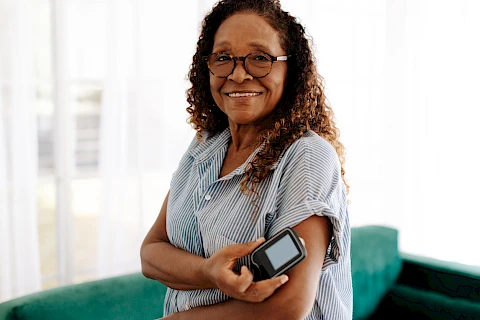
As our loved ones grow older, managing health conditions like diabetes becomes increasingly essential. In many seniors, diabetes may go unnoticed until symptoms become more serious, making early detection and ongoing care essential. Caregivers are often the first to spot changes in health and play a vital role in helping seniors manage the condition effectively. By understanding diabetes and recognizing its early signs, caregivers can take meaningful steps to protect their loved ones' health and quality of life.
Diabetes in Seniors: The Basics
Diabetes is a chronic condition that affects how the body processes blood sugar. In seniors, signs of diabetes can differ from those in younger adults. Seniors may experience more subtle symptoms, making it harder to identify the condition early. Age-related changes in the body can also increase the risk of complications. Caregivers need to understand these differences so they can provide better support for their loved ones.
Key Warning Signs of Diabetes in Seniors
Recognizing the warning signs of diabetes in seniors is the first step towards effective management. Common symptoms include:
- Increased thirst
- Frequent urination
- Fatigue
- Unexplained weight loss
- Blurry vision
- Slow-healing wounds
Specific signs, such as confusion or a sudden change in appetite, may also be more prevalent in seniors. By staying vigilant, caregivers can help catch these signs early and seek medical intervention promptly.
Importance of Regular Monitoring
Regular monitoring is also crucial in managing diabetes effectively. Routine health checks can help detect the condition early and prevent complications. Blood sugar monitoring is an essential tool for caregivers. They can use glucose meters to monitor seniors’ blood sugar levels at home.
Regular doctor visits are also important for evaluating overall health and making necessary changes to treatment plans. By staying on top of health checks, caregivers can play an active role in managing diabetes in seniors.
Supporting Seniors in Managing Diabetes
Supporting seniors in managing diabetes involves a holistic approach. A balanced diet is crucial, and caregivers can help by planning meals that are high in fiber and low in sugar and unhealthy fats. Encouraging physical activity, such as short walks or gentle exercises, can greatly benefit seniors by helping regulate blood sugar levels and improve overall well-being.
Medication management is another critical aspect. Ensuring seniors take their medications on time and as prescribed can help maintain stable blood sugar levels.
Role of Caregivers in Early Detection and Ongoing Care
Caregivers are the cornerstone of early detection and ongoing care for seniors with diabetes. Building a supportive environment helps seniors feel secure and cared for. Effective communication with healthcare providers also ensures that caregivers have the necessary details to manage diabetes effectively.
Keeping a record of medical appointments and follow-ups ensures that seniors receive timely care and that any changes in health are addressed promptly. By taking an active role in managing diabetes, caregivers can greatly improve the quality of life for seniors.
Discover Personalized Support for Seniors at Home
Caregivers play a vital role in recognizing and managing diabetes in seniors. Early detection and regular monitoring are essential components of effective care. Proactive health management, including dietary adjustments and physical activity, can make a significant difference.
For families in Vaughan, Thornhill, Richmond Hill, Oak Ridges, Aurora, King City, and Newmarket, Senior Helpers Vaughan is here to offer professional caregiver support. Contact us to take action on providing the best care for your loved ones and ensure their health and happiness.